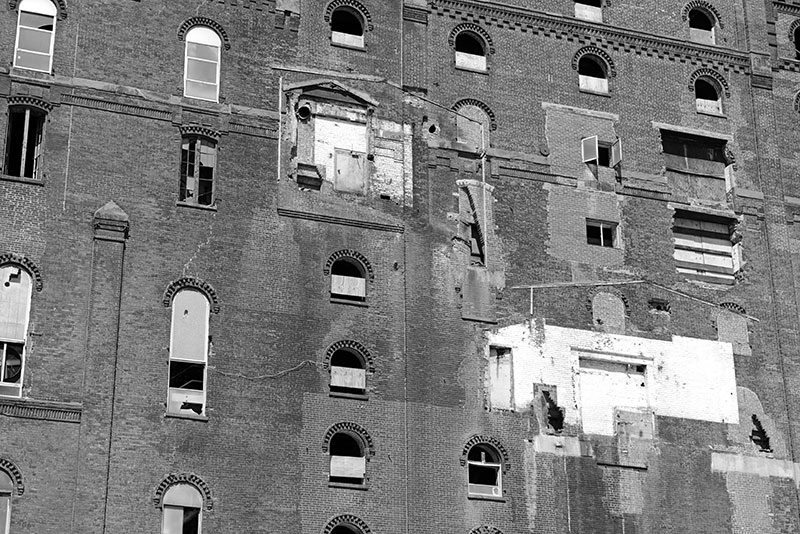Comptroller Stringer Audit: HPD Oversight Failures Lead to $12 Million in Questionable Payments

Millions of dollars were spent on demolition without required oversight, raising the specter of potential waste
HPD is unable to justify over 150 payments and prove jobs were completed or workers were paid prevailing wages
(New York, NY) — According to a new report from New York City Comptroller Scott M. Stringer, the New York City Department of Housing, Preservation, and Development (HPD) failed to properly review roughly $12 million in payments. In violation of City spending rules, HPD cannot verify whether these millions of dollars of payments for demolition work were appropriate, and whether all work was actually completed as required. As a result, unjustified payments of taxpayers’ money may have been made.
HPD is responsible for promoting the construction and preservation of affordable, high-quality housing for low- and moderate-income families across the City. As part of that work, HPD contracts with private companies to manage construction projects, demolish unsafe structures, and make building repairs.
To help ensure money is spent appropriately on construction and demolition work, City agencies are required to follow Comptroller’s Directive #7, which instructs them to establish “Engineering Audit Offices,” independent of agencies’ construction operations, to review and approve payments to contractors. These offices are responsible for conducting field inspections, verifying paperwork, and reviewing payroll data to ensure contractors have paid their employees prevailing wages. During Fiscal Years 2014 and 2015, HPD’s Engineering Audit Office reviewed contractors’ payment requests totaling $56.1 million.
However, Comptroller Stringer’s audit shows that HPD was unable to prove its Engineering Audit Office appropriately reviewed payments made by HPD totaling roughly $12 million. Without evidence that those payments were appropriately reviewed or the work was being done as contracted, the City has greater exposure to waste, fraud, and abuse. It also means unscrupulous contractors could more easily deny workers their prevailing wages.
“When it comes to tackling our City’s greatest challenges, every dollar counts. But when we have no idea whether $12 million of spending is appropriate, we’re not doing our due diligence and serving New Yorkers as they deserve,” New York City Comptroller Scott M. Stringer said. “These rules are in place to prevent waste, fraud, and abuse — and we have a clear example here of an agency that’s willfully violating them and putting millions of tax payers’ dollars at risk. It has to change.”
Specific findings in Comptroller Stringer’s audit include:
- Auditors reviewed a sample of 36 payment requests, totaling $10.2 million, from demolition companies and identified serious shortcomings with 32 — or 89% of them — totaling $9.6 million in HPD payments.
- Seven of the 32 problematic payments — totaling nearly $900,000 — were issued without any review whatsoever by the Engineering Audit Office.
- The other 25 questionable payments in the sample were reviewed in some way by the Engineering Audit Office, but auditors found most of those evaluations to be inadequate and incomplete. Of those 25 questionable payments:
- The records for 18 of them lacked evidence of required field checks;
- In 15 cases, there was no evidence of proper “desk audits,” where engineering auditors review payment requests, plans, documents, and permits;
- Files for 22 of them did not include the documents necessary to check whether contractors paid their employees prevailing wages, as required by law;
- In 8 instances, the payments did not comply with Procurement Policy Board Rules regarding prompt payment.
- When auditors expanded their search to include all demolition-related payments HPD made in FY14 and FY15, they identified 154 additional transactions — worth $2.3 million — that had not been reviewed by the Engineering Audit Office at all.
The Comptroller’s Office made 19 recommendations to HPD, including that its Engineering Audit Office conduct field visits to physically verify that payments align with completed work, that the agency perform all required prevailing wage checks, and that HPD ensure every payment request is submitted to the Engineering Audit Office and reviewed before being paid out.
“There are millions of dollars on the line, and behind every example of potential waste, there’s a family in need. Behind every contractor that doesn’t pay prevailing wages, there’s a hardworking New Yorker struggling to make ends meet. We have to do better,” Comptroller Stringer said.
To view the full audit report, click here.
###